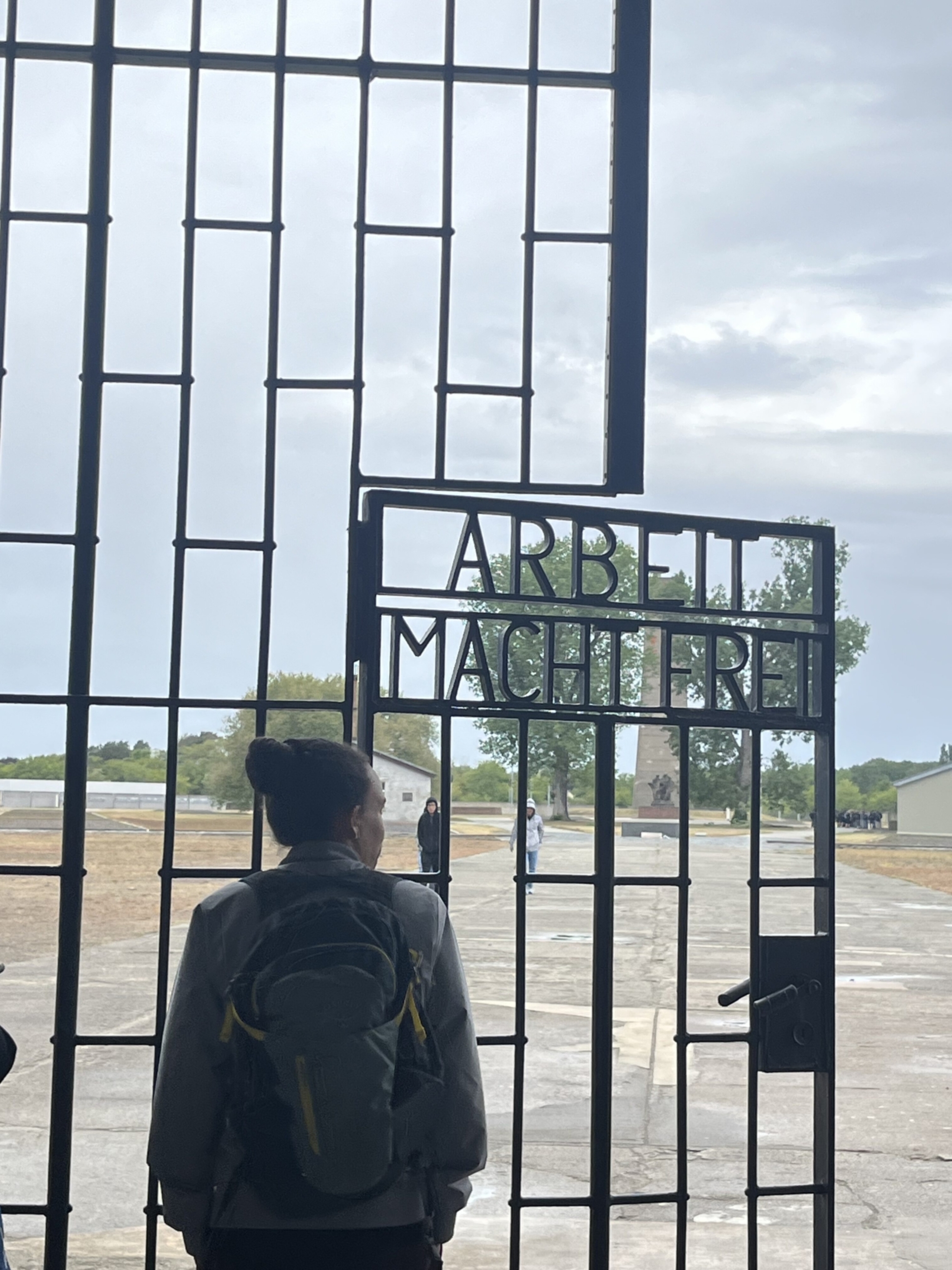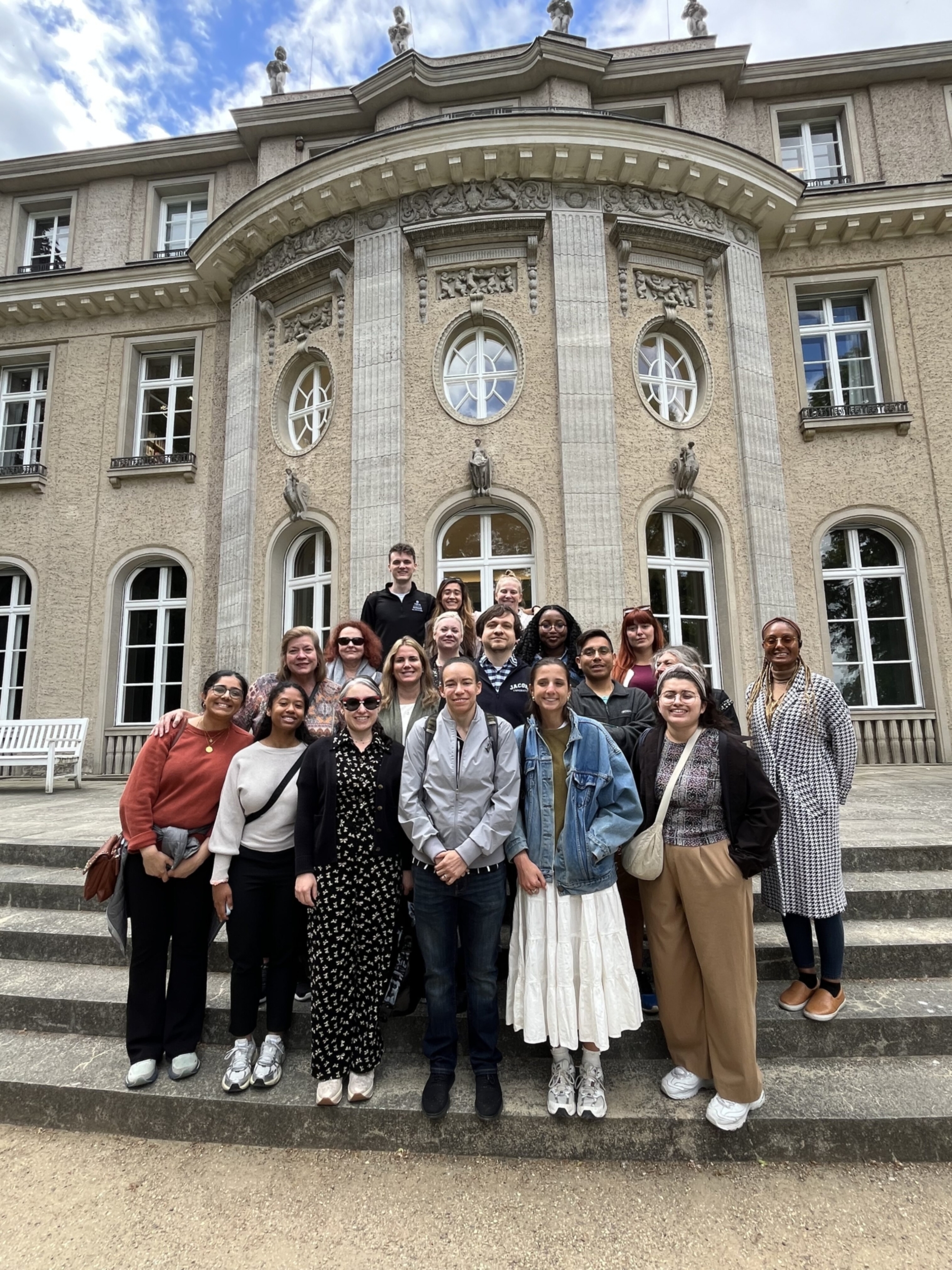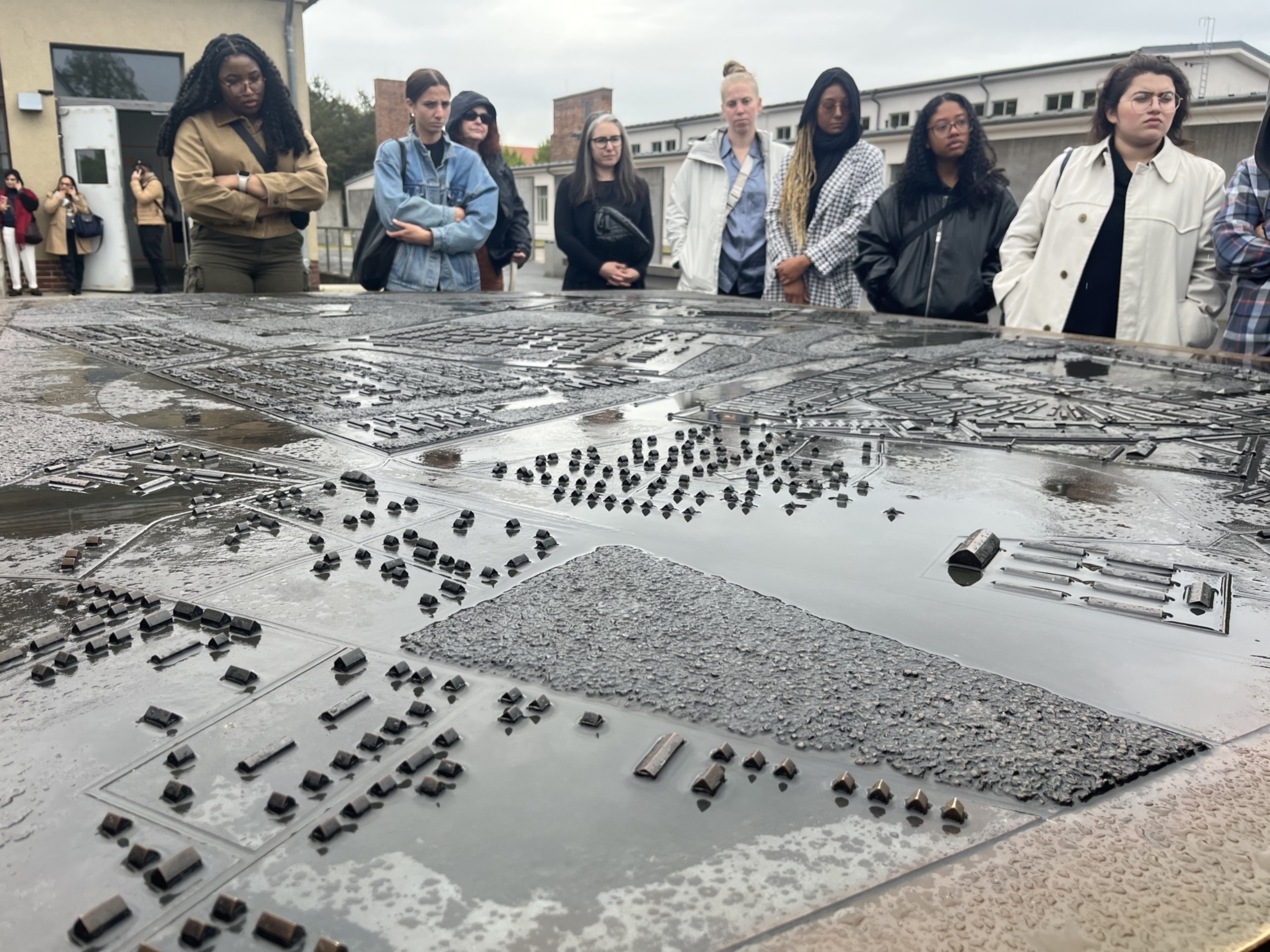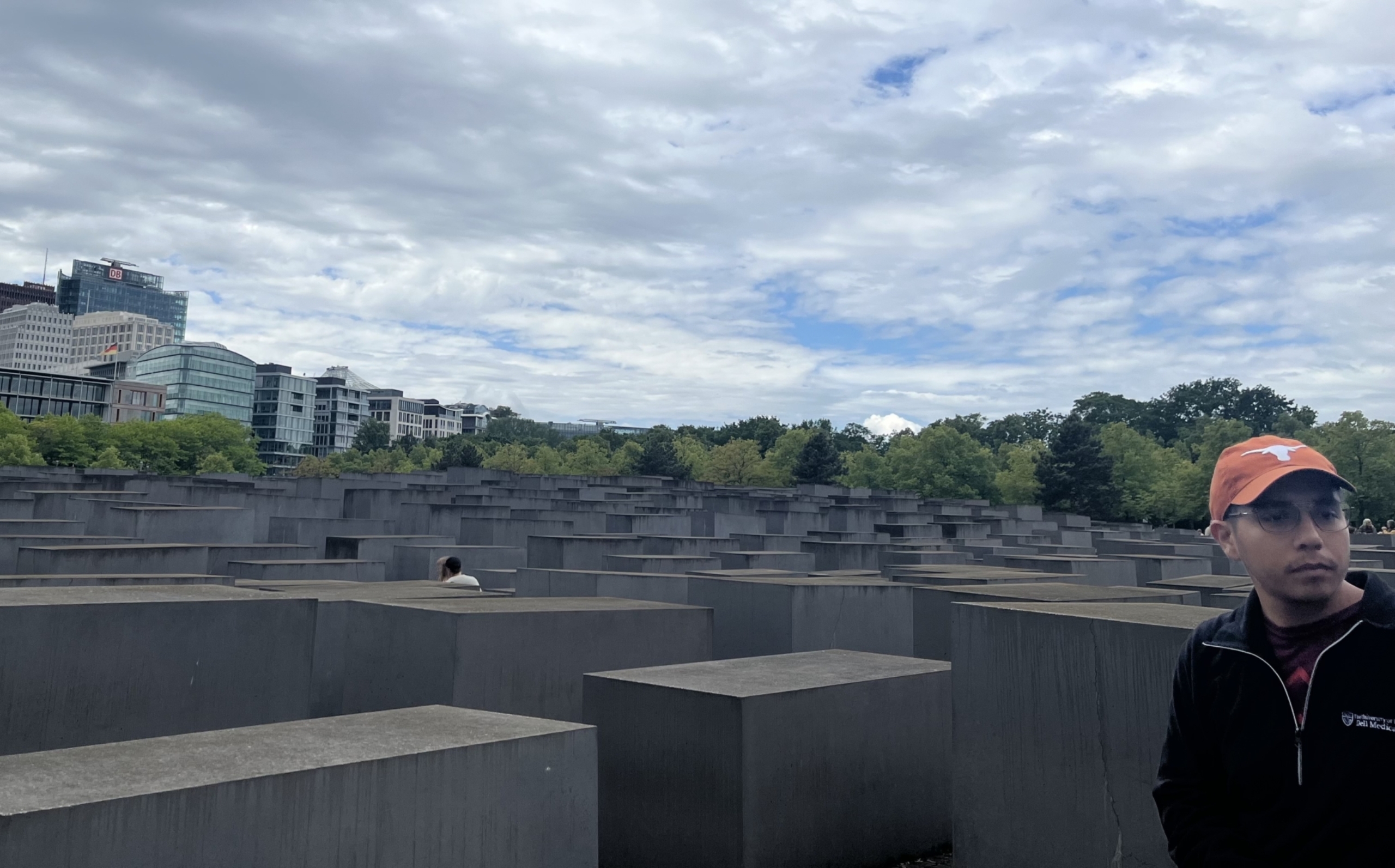As robotics, artificial intelligence and new technologies shape medicine’s future, Dell Med students learn how examining medicine’s history plays an equal role in building a future workforce rooted in empathy and courage.
Medical students study ethics as part of their education, learning principles like patient autonomy and the responsibility to avoid causing harm. The history of medicine with a focus on medical ethics during the Holocaust is less commonly taught, however, leaving medical students and professionals alike to discover and engage with it on their own — if ever.
To learn about the deeper responsibilities and implications of serving as a physician, a group of Dell Medical School students and faculty elected to join the Center for Medicine After the Holocaust to pilot an immersive learning experience examining the courage — and failures — of physicians whose choices under the Nazi regime remind us of the duty to serve patients with integrity.




This spring, those 12 Dell Med students traveled to Germany. They stood in the same hospitals, camps and gas chambers where physicians committed or facilitated medical abuse, using emerging scientific theories to justify public health policies that led to the genocide of targeted populations.
Claire Selinger, M.D., an assistant professor and clerkship director at Dell Med, arranged the weeklong elective program with the Center for Medicine After the Holocaust, which is dedicated to educating health professionals about the medical ethics of the Holocaust to better inform contemporary practice and research.
“These ethical principles came to life for the students on this trip in a way that sitting in a classroom could not do,” Selinger said. “I’m hoping we’ll lay the foundation for this kind of education going forward. We want our students to never be afraid to speak up when things start to get uncomfortable, even if it gets hard or creates turmoil.”
International scholars and guides led discussions and lectures spanning eugenics and the consequences of prejudice in medicine. Students examined artifacts and testimonials across sites of the Holocaust and engaged in reflective writing sessions. Stepping outside the structure of medical school allowed the group to contemplate this history and draw connections to the present and future.
The trip was the first of its kind for both Dell Med and the Center for Medicine After the Holocaust. Like Selinger, Sheldon Rubenfeld, M.D., the center’s executive director, sees direct engagement with medical students as essential to strengthening medical ethics education for the next generation of physicians.
“It’s distinctly uncommon for medical students to take trips such as this,” Rubenfeld said. “CMATH has typically taken medical professionals, ethicists and museum scholars. We’ve wanted for quite a while to take medical students early in their training to give them the benefit of this knowledge and apply it to their careers.
“Once you learn about the misuse of medical power, you tread more carefully with the medical power you have.”
Learning From History & Looking Ahead
Careful stewardship of medical authority is one of many lessons the Dell Med students plan to carry into their careers and share with their peers along the way. For Sam Little, a third-year student, the experience reinforced that physicians must critically examine how scientific ideas evolve — and speak up when they threaten patient well-being.
“If you feel like something is wrong or are seeing things that are not aligned with the moral compass we should have as physicians, it’s knowing we should stand up and say something,” Little said. “The main point is really examining what I’m doing and making sure I’m not just following a group. And making sure my actions are always in line with taking care of patients.”
Third-year student Emma Ableman feels a responsibility to share what she learned and advocate for a deeper integration of medical ethics into medical education: As the Dell Med group resumes its academics back in Austin, their engagement with medical ethics continues through planned professional development with their peers and mentors.
“This is important and should be the standard in medical education,” Ableman said. “Our role in society is to visit these places, to tell these stories, to learn about medical ethics and about what doctors have done in the past and to not forget those things … to make sure they never happen again.
“There’s a hope aspect I left this trip with. I have hope we can get more people to go on this experience and pass it down.”